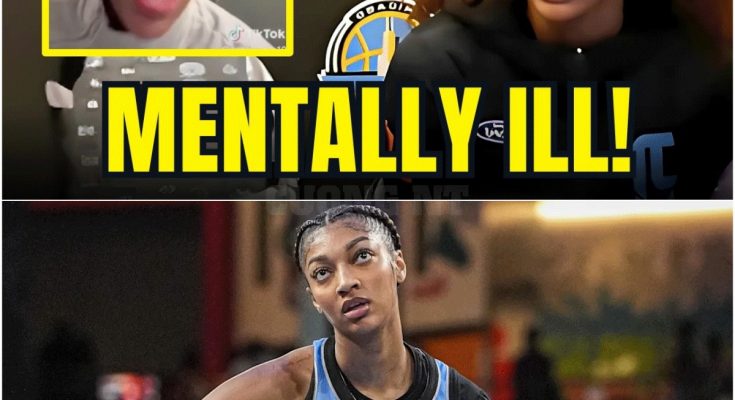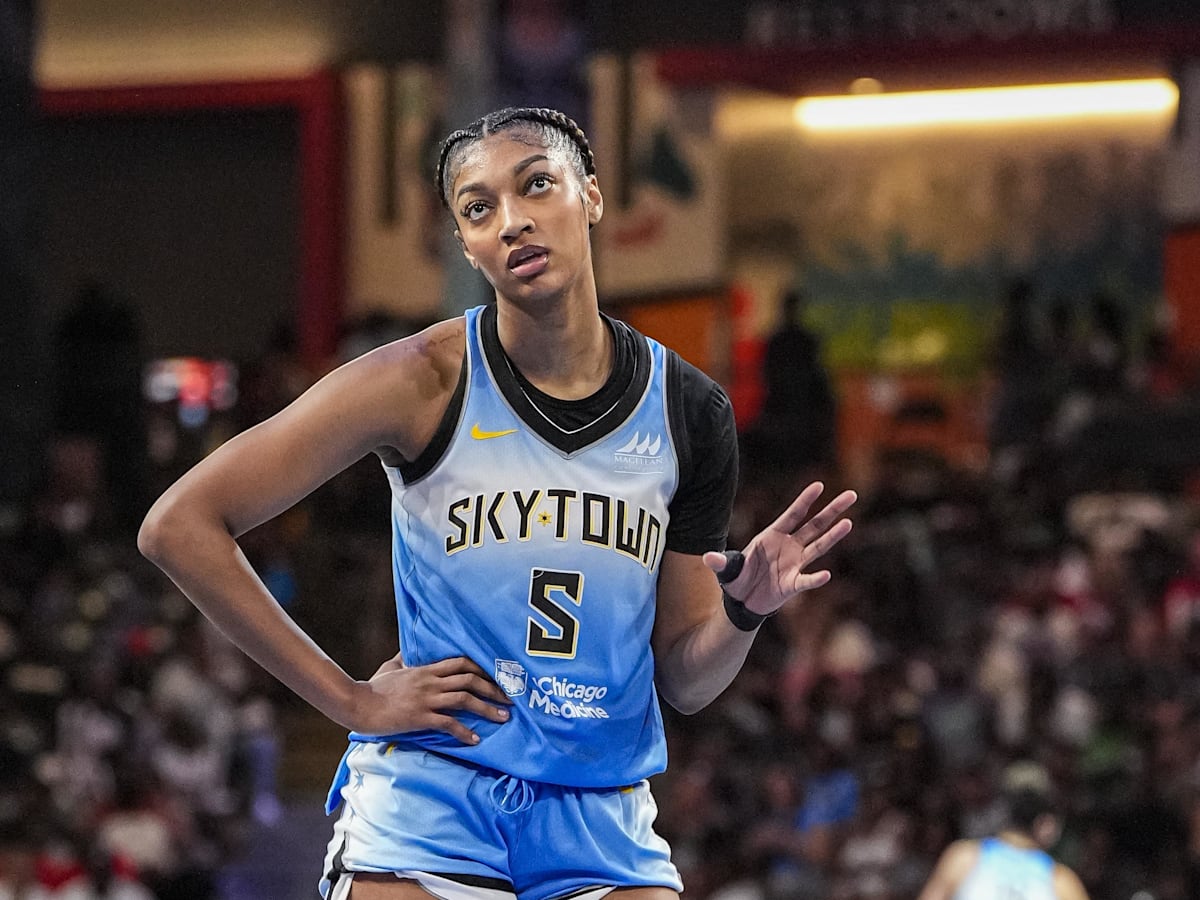When Angel Reese logged onto social media to post a defiant video response to critics calling her “MeBounds,” she probably thought she was seizing control of the conversation. But what unfolded was a public unraveling that had less to do with basketball and more to do with optics, timing, and the harsh spotlight that comes with being a modern athlete.
Reese’s response was unfiltered and unapologetic—true to the persona she’s built. “Anything that comes off that board—it’s mine,” she declared, attempting to turn a dig into a badge of honor. The video was bold, brash, and dripping with the kind of swagger that once made her a fan favorite. But instead of squashing the criticism, her message only fanned the flames.

The Origin of “MeBounds”
The “MeBounds” nickname didn’t appear out of thin air. It’s a cutting play on words, merging “me” and “rebounds” to suggest that a large portion of Reese’s rebounding numbers come from collecting her own missed shots. The data supports some of the claim: 217 of Reese’s 552 career rebounds are offensive—meaning a significant chunk comes from opportunities she created by failing to convert on her first attempts. Her current shooting percentage hovers around 36%—unimpressive for a 6’3” forward expected to finish around the rim.
For critics, it was the perfect setup: an elite rebounder with a below-average shooting clip, ripe for ridicule. For Reese, who prides herself on being a force in the paint, it likely struck a nerve.
PR Power Move or Meltdown?
Athletes face criticism all the time. Most ignore it, some internalize it, and a few—like Reese—decide to fire back. But there’s a fine line between confidence and overexposure, and Reese’s video might have crossed it. What was intended to be an empowering, brand-reinforcing moment instead became a case study in how social media can magnify a misstep.
The tone of the video mattered. It wasn’t calm and calculated—it was defensive, emotionally charged, and a little chaotic. Instead of framing herself as unfazed, Reese looked rattled. The delivery, body language, and timing (just hours before a nationally televised game) gave off the impression that she was more concerned with optics than performance. And in today’s digital landscape, perception is everything.
Rather than dismissing the “MeBounds” label with humor or silence, Reese inadvertently legitimized it. Her acknowledgment confirmed that the nickname got under her skin—exactly what internet trolls aim for. Suddenly, the conversation wasn’t about her ability to dominate the boards. It was about how she reacted to a nickname.
Even more damning was the apparent contradiction. At a press conference just days earlier, Reese claimed she paid no mind to online trolls. Yet here she was, speaking directly to them in a heavily stylized post, giving the impression that she was lying either then or now. The inconsistency didn’t sit well with fans or the media. It didn’t take long for commentators to pile on, with some drawing comparisons to public meltdowns by celebrities who lost control of their image under pressure.
And if you’re wondering whether this criticism is harsh, remember—Reese herself invited it. The internet isn’t a forgiving place for athletes who mix high-profile mistakes with a social media spotlight.
Comparison Is the Thief of Joy—and Credibility
What makes Reese’s situation even more pronounced is the backdrop of other rising stars in the WNBA. Caitlin Clark, arguably the league’s biggest current draw, has faced her own wave of criticism, much of it unfair. But instead of responding online, Clark has let her play speak. She’s pulled off statement wins, hit logo threes, and led her team to victory—all without ever addressing the noise.
Fans notice this contrast. One star stays locked in; the other appears distracted. It’s not a fair comparison, but it’s inevitable. And in a league still fighting for mainstream respect, professionalism matters just as much as production.
Social Media’s Double-Edged Sword
There’s nothing wrong with athletes having personality or clapping back—if it’s done right. Serena Williams famously silenced critics through performance and carefully crafted responses. LeBron James leaned into his “Chosen One” persona with undeniable play. Reese’s attempt lacked that finesse. It wasn’t a mic drop—it was an open mic, and everyone chimed in.
By reacting emotionally to a troll-driven label, Reese lost control of her own narrative. The discussion shifted from her contributions on the court to whether she should even be paying attention to critics at all. Some even questioned her priorities: why spend time responding to internet jabs when there’s a big game to prepare for?
The video raised legitimate concerns. Was Reese mentally locked in? Was her team on the same page? Did she really think she could reclaim the insult with a single video? The answer to all three questions seems to lean toward no.
Reese is still an elite athlete. Her ability to clean the glass is unmatched in the league, and her intensity on the court is part of what makes her great. But part of being a star is knowing when to engage—and when to rise above. In this case, she handed the trolls exactly what they wanted: a reaction, a moment, a spotlight.
And that’s the danger of social media for modern athletes. The platforms that build brands can just as easily dismantle them. Reese’s video didn’t just fail to end the conversation—it gave it new life. The “MeBounds” tag, once a fringe joke, is now mainstream. Worse, it’s connected to her image in a way that will be hard to shake.
Lessons From the Crash
There’s a cautionary tale buried in Reese’s clapback. Public figures live under constant surveillance, and every post has the power to enhance or erode their brand. Engaging critics can sometimes be strategic—but only if it’s done with clarity and control.
Reese’s move lacked both. She appeared reactive instead of reflective, emotional instead of empowered. Instead of putting her critics in their place, she gave them more ammo.
Moving forward, the best thing Reese can do is get back to what she does best: dominating the game. Because at the end of the day, performance silences everything. The rebounds, the blocks, the hustle—all of it matters more than a video ever will.





